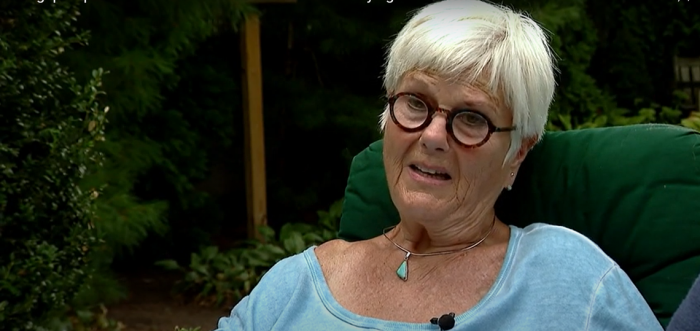October 1, 2022
Beyond State Borders in Assisted Suicide
Beyond State Borders in Assisted Suicide
A terminally-ill Connecticut woman is suing Vermont to drop their residency requirement for physician-assisted suicide.
Bridgeport resident Lynda Bluestein, in addition to a Vermont physician, filed a lawsuit in the U.S. District Court in Burlington last month that argues the Green Mountain State’s residency requirement for medical aid in dying violates the U.S. Constitution, according to court documents.
Bluestein, 75, was diagnosed with breast cancer in 2018, followed by malignant melanoma a few months later, and in 2021, she was told she had end-stage fallopian tube cancer, she told Vermont Public Radio on Sept. 22.

“In that moment I realized that I am indeed following my mother who also had three individual cancer diagnoses and died a death that she would not have wanted for herself and certainly I don’t want for myself,” Bluestein told the outlet.
Connecticut, where she lives, does not allow physician-assisted suicide, though it has been brought up in the state legislature several times, according to the Hartford Courant.
Vermont is one of 11 states that permits the practice, but only terminally-ill residents of the state qualify under current law. Oregon was the first state to legalize physician-assisted suicide for dying patients in 1997.
The recent Vermont lawsuit argues that the state’s residency requirement violates the equal protection, commerce and privileges and immunities clauses of the U.S. Constitution.
Bluestein is a “fully competent” retired public health professional who has been married for 40 years and has two children and two grandchildren, according to court documents.
“I love my life; I don’t want to die,” Bluestein told Vermont Public Radio. “But I don’t want to suffer at the end of my life. I’d like to choose how my final days are going to look.”

Bluestein argues that if she were to move to Vermont, there would be a process of proving residency and transferring medical records, among other tasks that would be required to be completed in the last months of her life, she told Vermont Public Radio, adding “I would lose my entire network of support.”
A representative for the Vermont Right to Life Committee, an organization against assisted suicide, said that “if the challenge is successful Vermont could become a destination for terminally ill people seeking to end their lives,” according to the Associated Press.
“People would not let their dog or cat suffer like that,” Bluestein’s husband, a physician, told News 12 in August. “And yet they’re perfectly willing to have people suffer.”
Seventy-two percent of Americans say doctors should be able to assist terminally-ill patients in dying, according to a 2018 Gallup poll. Sixty-five percent support the measure when the question includes the phrase “commit suicide.”
Exitorial Note – Beyond State Borders in Assisted Suicide
This action comes on top of Oregon, in early 2022, deciding to drop its residential requirement following a lawsuit alleging the requirement was unconstitutional.
Exit